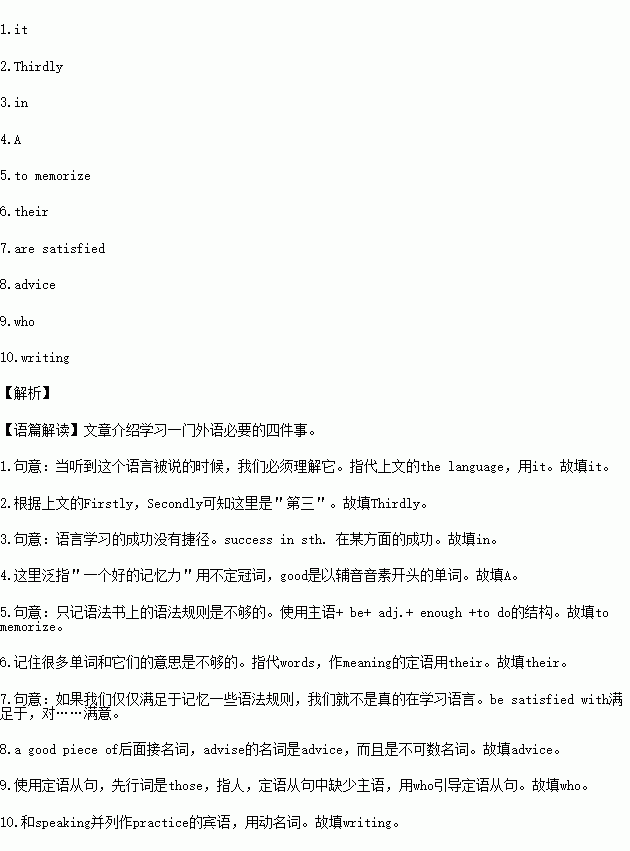题目内容
语法填空
阅读下面材料,在空白处填入1个适当的单词或括号内单词的正确形式。
In order to know a foreign language thoroughly, four things are necessary. Firstly, we must understand the language when we hear 1 spoken. Secondly, we must be able to speak it correctly with confidence and without hesitation. 2 (three), we must be able to read the language, and fourthly, we must be able to write it. We must be able to make sentences that are grammatically correct.
There is no easy way to success 3 language learning. 4 good memory is of great help, but it is not enough only 5 (memorize) rules from a grammar book. It is not much use learning by heart long a list of words and 6 (they) meaning, studying the dictionary and so on. We must learn by using the language. If we __7__ (satisfy) with only a few rules we have memorized, we are not really learning the language. "Learn through use" is a good piece of 8 (advise) for those 9 are studying a new language. Practice is important. We must practice speaking and 10 (write) the language whenever we can.

